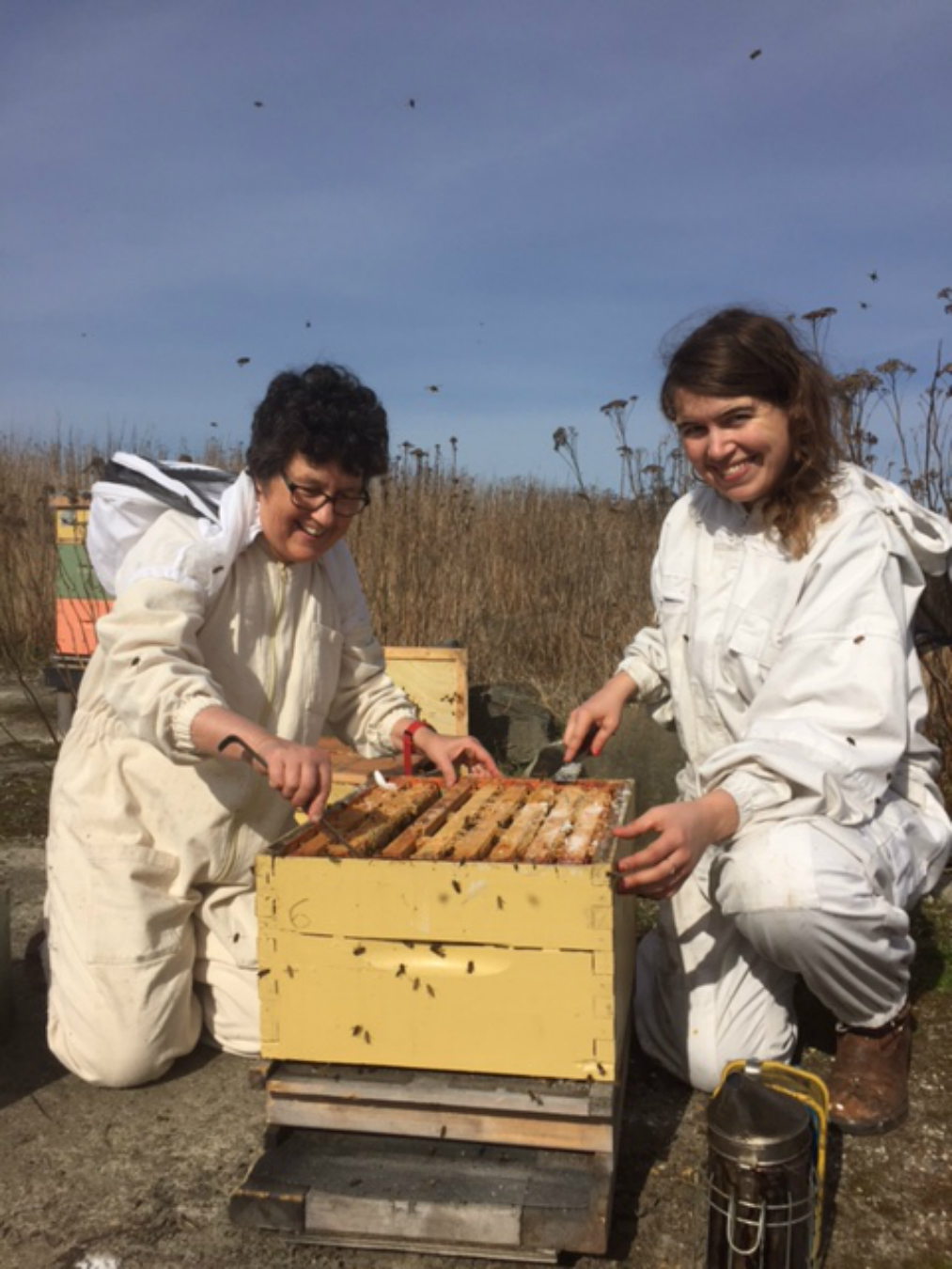Bees have a glowing reputation. They’re helpful, loyal, and get along famously with their co-workers, and their main objective is to keep the good things growing; it’s hard to not be encouraged by their buzzing relentless positive outlook. Perhaps it is fitting, then, that Vancouver’s Hives for Humanity has experienced success with its beekeeping outreach program in one of Canada’s poorest neighbourhoods. The non-profit society encourages hands-on experience with hives serving at-risk individuals in Vancouver’s Downtown Eastside (DTES), cultivating a culture of hope with each sticky pot of honey.
The organization took form when co-founder Sarah Common began looking for alternative means to augment her work in the community. “I’d been working in the DTES for a number of years and through that got involved in community gardens,” she says. “I started looking for different ways to enhance people’s experience and create more meaningful ways to engage and increase the diversity of programming.” Her search led her back to her mother, Julia Common, who had worked as a hobby beekeeper throughout her childhood.
Sarah recalls the first, somewhat uncomfortable conversation the two had on the subject: “It’s a funny conversation that we had that was like, ‘You know, mom, I’d like to do something more than just have coffee with you ever couple of weeks. You’re a beekeeper, will you teach me?’” Though initially hesitant, her mother agreed to assist her with the first project: one hive in a DTES community garden. “We found that with the one hive, the garden was brighter—people we’re more engaged,” reflects Common.
The first hive was not only successful in terms of ecological benefits, serving the health of the garden, but also in the surprising service the hives provided to the residents. “The bees require focus,” Common explains. “They require you to be calm.” In a community overcome with daily tragedy, small moments of tranquility hold immense value with trickle-down gains. “People connect on this spiritual, visceral, and immediate level,” says Common. “People were starting to talk about the next year, and talk about it with hope in their voices.” Giving the DTES community a reason to look to the future was in and of itself a transformative tool. “Speaking about next year with hope is rare for people living with chaos, addiction, instable housing,” Common says. “Often you don’t hear about the future because it is so unsure. It was a meaningful moment to realize the hope there. It could have just stayed one garden, but we realized it could be a lot more.”
Since the first incubator, Common and her mother, who share the title of executive director, have grown the program to multiple hives throughout the city. Partnerships with the Portland Hotel Society, RainCity Housing, and Atira Women’s Resource Society host the core group of therapy hives, with additional ones located at local businesses including the Fairmont Waterfront, and as well as in city parks. The hives’ impact on the community on an ecological level has been a welcomed surprise. “One of the discoveries was how well bees do in the city,” recalls Common. “The city supports both honeybees and native species, and the diversity in the city, the lack of monoculture, the lack of heavy chemical agriculture, [means] the honeybees and native bees can forage all year. That was a really exciting and hopeful lesson.”
Nurturing community on the both the macro and micro levels, Hives for Humanity has grown beyond the community gardens’ seasonality and is now in full-year operation. “In the summer, we’re out in the gardens with the bees, but in the winter we need a space so we can produce the same kind of service,” Common explains. In order to provide year-round continuity, Hives for Humanity is opening a brick-and-mortar headquarters Bee Space in the DTES. Combining a café where honey from the hives will be sold along with tea, coffee, and honey-laden baked goods, the space will also host workshops and training facilities, as well as employment opportunities. The organization is hosting a crowdfunding launch party Oct. 22 at Big Rock Brewery, with a goal of matching the city’s contribution to the space.
Mimicking the purpose of the very bees they serve, Hives for Humanity gives as much as it gets. With social and environmental sustainability in perfect balance, a cyclical relationship has formed and continues to produce unexpected benefits. “Through the bees I’ve gotten to know my mum; we’ve really had to work together to understand each other, how we communicate, and who we really are,” says Common. “She’s always taught me to spread my joy, something she learned from her mother, and something I am grateful to have the opportunity to carry forward.” Common echoes the resolution of her bees: an adamant determination to work towards the regeneration of life. Like the other numerous results of Hives for Humanity, the sentiment is sticky, sweet, and best spread on thick.










